SUCCESSES
Our Victories at Focused Recovery
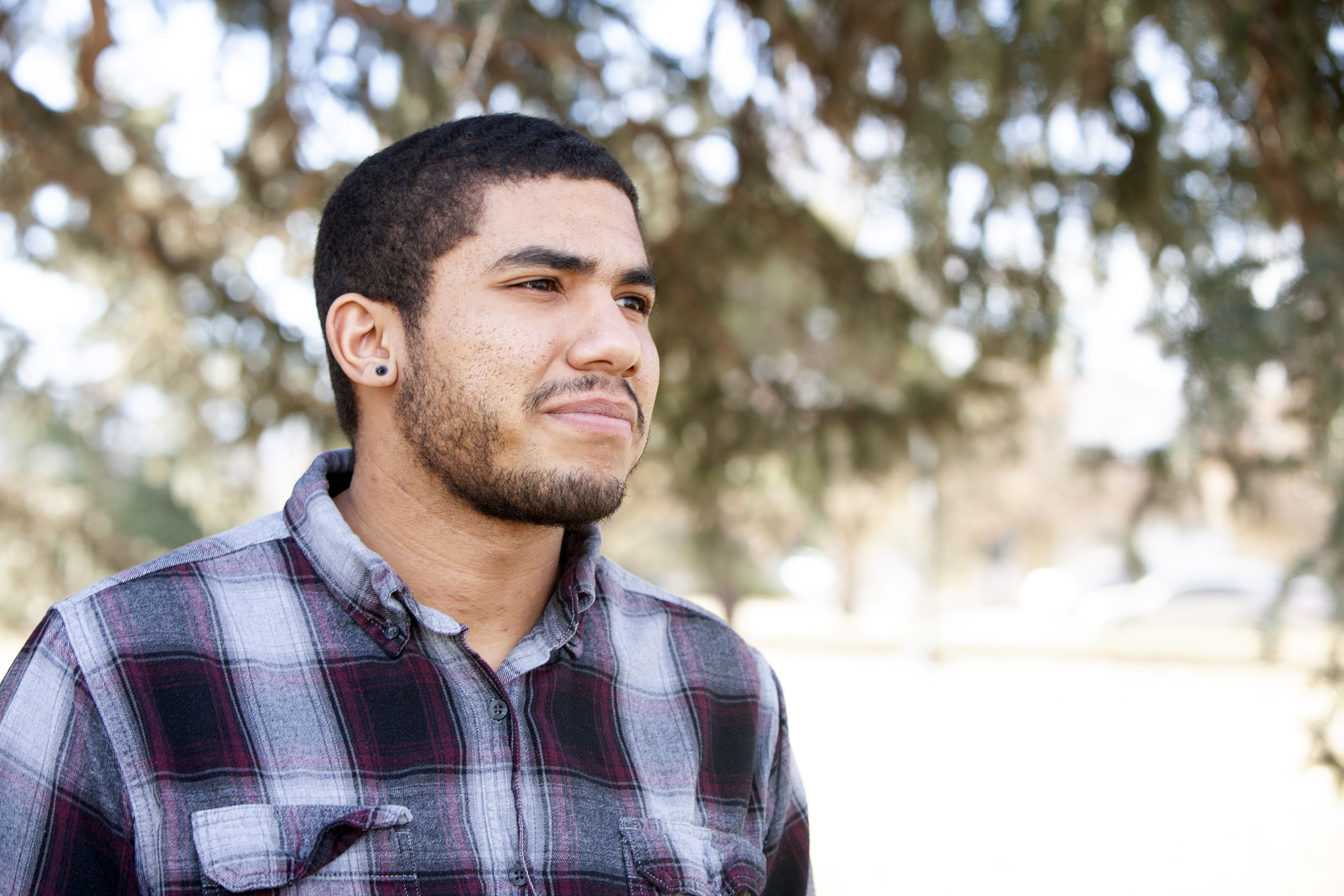
Elijah's story

Elijah's Story
“I was a ‘status quo’ addict,” Elijah said. “I believed I was managing my drug use as long as things looked good on the outside.”
Elijah’s parents divorced when he was five, and things were rough.
His mom struggled to make ends meet; his dad struggled with addiction. “I was very impressionable. I wanted to fit in. My friends’ older siblings were in gangs, and that looked attractive. When my mom remarried, home didn’t feel safe, either. There was no physical or sexual abuse, but there was a lot of emotional and mental abuse. I was living in an environment of fear.”
In order to provide for her family, Elijah’s mother joined the military. While she was in basic training, the kids moved in with their father. Elijah was in fifth grade and his dad used openly. Elijah remembers watching in fascination as his dad rolled joints.
When his mom completed training, she and the kids moved onto a military base in Kentucky. For the first time, Elijah had structure in his life and positive male role models around him. He loved it.
Even after his mother returned from her tour of duty, his using continued. His grades were slipping. He was kicked off the football team. He was getting suspended from school.
When Elijah was a sophomore, his mom and stepdad moved to Colorado. He thought he would join them – but he was in too much trouble. When they moved, he went to live with his dad again. Elijah actually started applying himself. “I had this resentment toward my mother and this apologist mentality for my dad. My mom was better for me in a lot of ways, but I’d try a little harder for my dad.” But he was still smoking pot daily and drinking frequently.
In his junior year, he started working at the same restaurant as his dad and older sister. “I settled into working in a restaurant and getting high, which was basically following my father’s footsteps. And that was alright with me.” Elijah began partying a lot more. “My dad is weirdly strict, in spite of his own stuff. His thing was always ‘Do as I say, not as I do’. But it was easy to lie to him, because he was always stoned.”
He managed to graduate and left for college in Colorado. But he rarely went to class, and became more and more caught up in drug use. “I was officially on my own. There was no one who could tell me not to do anything.” Elijah was drinking every day, and began using LSD, ecstasy, and mushrooms. Rationalizing that “this is just what college kids do,” or comparing himself to others, he would tell himself that he wasn’t that bad, that the consequences beginning to pile up weren’t that bad. His family was doing the same dance. They knew he was getting in trouble but tried to believe it was no big deal. “Looking back, I can see I wasn’t like ‘normal’ college kids, because getting high was my daily focus. I always wanted to do more.”
That summer break he tried Oxycodone for the first time. “I remember being really high on oxy and just being like, I want this forever. I want this forever and ever. And the chase began. I was 19. My friends and I used to get together, do cocaine, roll on ecstasy — but now my old friends were all opiate addicts. I tend to take on the identities of those people around me. Like it says in the Big Book of Alcoholics Anonymous, at some point you lose control and you are officially unable to grasp any bit of control over when, why or how you drink or use drugs. That was it for me.”
His girlfriend broke up with him, and he responded by staying stoned. His family recognized there was a problem and didn’t want him to go back to school. “But I thought there was a chance I could get back with her.”
But when he went back, it got worse. “The first time I smoked heroin, this girl brought it over, and I was in despair. I had been drinking a ton, and I was like, yeah, hand that over. This thing that seemed so scary— all of a sudden, it just looked so good. I didn’t know you could smoke heroin. I thought you had to shoot it. It seemed safer. I could justify it.”
“Partying” gave way to a constant cycle of drinking and drug use. One night Elijah was pulled over with drugs in the car. There was a warrant outstanding for a drunk driving incident he had forgotten about, and he was arrested.
He recalls calling his mom from jail and for the first time admitting what he had been doing. He promised it was never going to happen again; he was going to change. Yet the day he got out, he got high. “I needed a substance. I just didn’t want to live in reality.”
He returned to Albuquerque, and within six months he had two jobs, a car and an apartment. “I was like, I beat it. I changed. I thought I was proving myself. I was functioning, but I didn’t stay sober at all.”
Back with old friends, Elijah started taking oxycodone regularly. He believed he was controlling it because he didn’t do it all the time. Elijah kept trying to prove he had it under control. “I always had to make sure that my outside looked right. And I always had to make sure that everyone still thought I was getting my shit done.”
But the addiction was escalating. Elijah still tried to rationalize his use, telling himself he worked hard to maintain his apartment, financial responsibilities, and his drug use. He didn’t steal, rip people off, or commit fraud. He was working seven days a week. He believed he had it under control. He began buying Suboxone off the streets to ward off withdrawals and be able to function.
But he had no control over his emotions; he was arguing constantly with his family. He also couldn’t get high the way he used to, and couldn’t afford to use as much as he needed. He was completely dependent on drugs to feel normal. “I knew this was no way to live.”
But Elijah didn’t know what sobriety meant. His method of getting off Oxy was to smoke a lot of marijuana, use Suboxone, and substitute with Xanax. He would do cocaine during the day to give himself energy and Xanax at night. The Xanax use escalated frighteningly; he he knew Xanax withdrawal could be deadly. He lost one of his jobs due to his drug use, and could no longer afford his drug use. “I was really scraping the bottom of the barrel.”
He had started seeing a therapist and finally asked for treatment recommendations. They found a 30-day treatment center and he agreed to go.
“I remember telling my mom that after this, I’m just gonna smoke pot and drink, right? And I’m telling myself I’ve been able to manage that before. I just need to sweat this out. I think I can do that.”
He went to treatment and even decided to enter into a Sober Living program after, but he still held onto the idea that he would be able to drink and smoke pot when he got out. The program he was in taught 12-step recovery, but Elijah struggled with that model. He feared that if he gave up intoxicants, he would lose access to his creative self.
He left the Sober Living early. As soon as he got home, he smoked pot. He began drinking and using Xanax again almost immediately. Before long, he was in touch with an old dealer. Within a couple months he couldn’t maintain the appearance that he was managing. He was passing out at work, and one night had an accident. He knew when his employer investigated it he would be busted.
He decided to detox again and returned to the Sober Living facility. This time Elijah knew it had to be different. He didn’t have the cushion of the 30-day treatment, so he threw himself into the program — taking suggestions, working the Steps, going to meetings and signing up for several service positions, such as making coffee and chairing meetings.
He started sharing more honestly, admitting when he was having cravings, which he didn’t do the first time — he had wanted to seem like he had things under control. Elijah really cared about his recovery this time, and was able to get a glimpse of himself as a productive, sober person. He started acting in local theater productions. He got a new apartment and two jobs — one of them giving alcohol presentations to high school students.
“I was doing a lot of good stuff. I was still very active in the community, very active in the program. But my growth stopped when I got a girlfriend. I was going to meetings and doing service, but I wasn’t working a program of recovery. I kind of kicked my feet up. The way I see it now I was using, but I was using a person like I would use a drug.”
“I told myself I was a success story. Everything looked really good on the outside so it must be good on the inside.” He was keeping up the status quo. But he started doubting the 12-Step programs and stopped doing service. With the loss of the accountability to stay sober, he decided he could handle drinking again. He convinced himself he was not powerless over his addiction, that he could conquer it on his own. And when the relationship fell apart, he picked up heroin again.
Elijah had learned enough in treatment to know he had to do something different, fast. He called a friend in recovery who came to help him. Then he called his mother, admitted everything, and told her he had to come home. “It was that moment that I really conceded to my innermost self that I was an addict.”
He signed up for an intensive outpatient program and threw himself back into 12-Step meetings. “I still felt 12-Step programs were kind of cults, but I didn’t know how else to to stay clean. I only knew one way: go to meetings, be of service, work the Steps. That’s the only thing that ever worked for me. I had the willingness.” He got a new sponsor who helped him understand he truly was powerless over drugs and alcohol, and if he didn’t fully believe that he was just going to keep doing the same things over and over again.
Elijah made a shift this time. He came to love his recovery — he wanted go to meetings, hang out with recovery people, participate in sober events. Nine months in, he’s learning to be patient with himself, recognizing that he’s human and it’s okay to make mistakes. “I definitely think my true nature, when I’m not in my disease, is organized, punctual, and structured. That is the kind of person I am deep down. I learned unhealthy practices growing up. I just kind of thought I was a lazy procrastinator, a liar, a cheat.”
He is working again, rebuilding relationships with his family, and contemplating buying his first house. He has started performing as an actor and comedian, but is learning to take it slow, build up his daily routines, maintain his program. “One of the biggest aspects of someone who can achieve or will achieve long term recovery is the ability to see a future for yourself without substances. And anytime I think of my future there’s no substances involved. There’s no drinking, there’s no using. I can see myself doing everything I’ve always wanted to do, sober. I can envision that and I can imagine myself being able to stay sober through anything.”
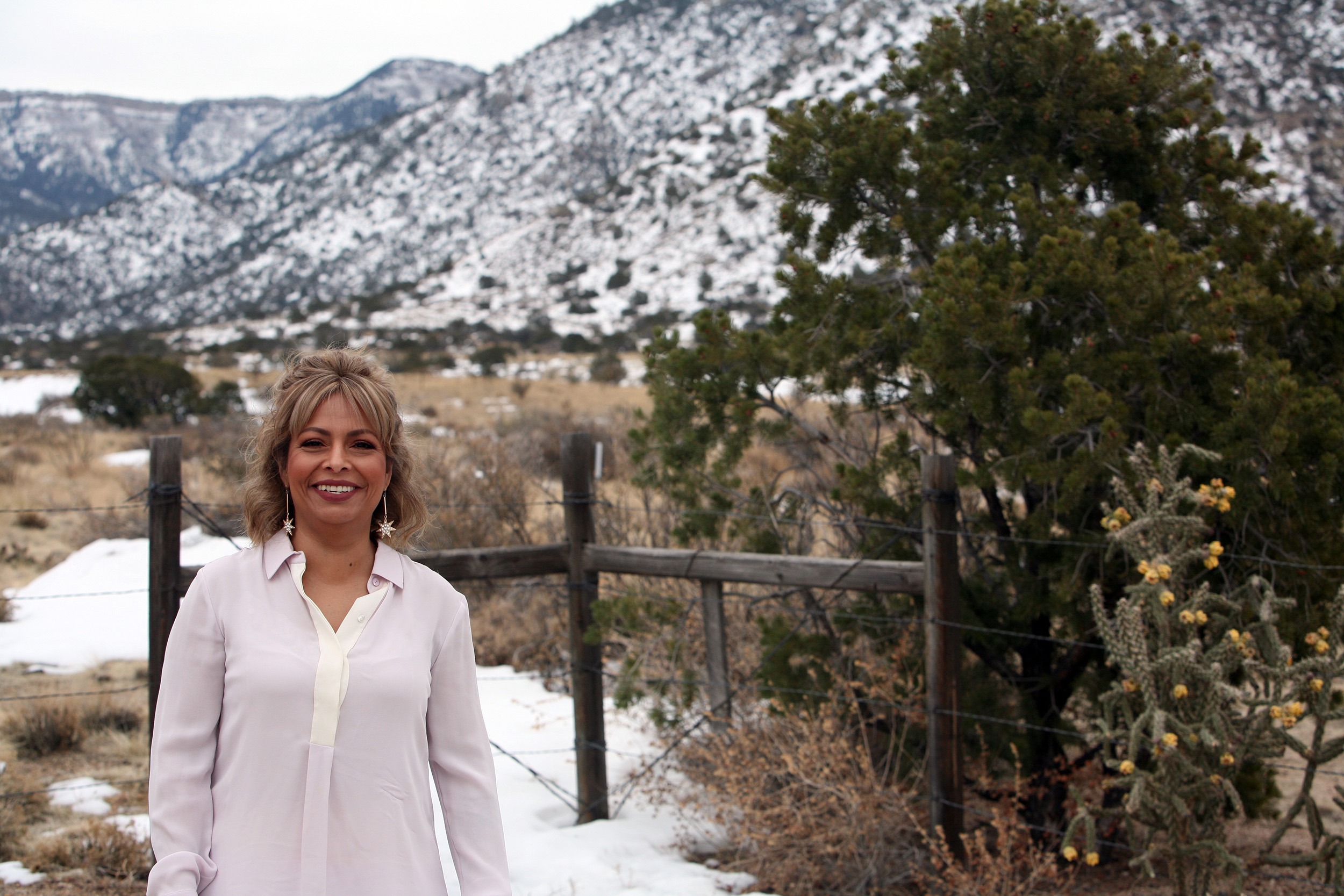
Lily's Story

Lily's Story
Lily was 36 and thinking about suicide. Her husband had passed away suddenly and unexpectedly; she suffered from chronic pain due to lupus; and she was addicted to prescription pain pills. When she was diagnosed with lupus ten years earlier, she was prescribed opiates to manage the pain.
Over time, Lily began misusing her prescriptions. “I was prescribed by a pain management doctor. And I went every, let’s say 30 days, which is silly, it was every 20 days, and I would go talk to him about how I lost my pills or I overtook a couple. It turned into a game — trying to manipulate the system to get more pills.”
Lily was a “somewhat functioning addict.” She worked at a credit union and at LANL. But her work performance suffered from her addiction. “My life became about timing, when I was going to be able to take more pills… They were really taking over my life. I wasn’t present at all. I was always thinking about the pills, thinking about how I’m going to get more and when I did have more, well, I’d take them all and then try to figure out how to get more tomorrow.”
After her husband’s death, her addiction escalated. She spent a lot of money purchasing pills online or asking family members who had prescriptions to get more for her. She began isolating, hardly leaving her house. “I became really miserable. The isolation and resignation were overwhelming.” When a family member approached her about her drug use, she knew she had to do something. She had two boys who had already lost one parent. She had to get help.
Read MoreLily utilized a variety of services for the treatment she needed, including medical detox, group and family therapy, IOP, and pain management. She became an active member of Narcotics Anonymous, where she now chairs a meeting and serves as an events coordinator. Of the multiple treatments she participated in, she says the group therapy was especially powerful. “I learned that there were other people with pain and that we were all trying to figure out how to deal with it, and also how it ties in with all the other traumas that we lived through.” Attending NA meetings also contributed to that sense of shared experience and taught her the ability to learn from another addict. “It helped me not to go on the roller coaster of emotions. Knowing that other people felt this way and hadn’t died from it, or hadn’t gone off and used, helps a lot. It grounds me and helps me be present. These are feelings, they’re gonna pass. I don’t need to go into ‘Oh my God, I’m overwhelmed and I can’t do this anymore,’ and reach for something outside myself to numb those feelings.”
During both family and grief counseling, Lily recognized that trauma she experienced as a child caused her to disconnect from her body and her feelings, and set her up for addictive behaviors later in life. Lily had spent her life over-achieving in order to outrun her emotional pain, rather than addressing it and healing. She views her lupus diagnosis as that emotional pain manifesting physically.
Several years later, Lily is a dynamic voice in the recovery community. Besides her participation in NA, she has worked at a treatment center for adolescents, works with Turning Point now, has gone back to school, and volunteers in her time off. She speaks at high schools with the organization Healing Addiction in our Community, and she raises her two boys.
“Recovery is the best thing that I could have done for myself and my family. It’s hard sometimes, but it’s worth it. I’m walking through a lot of pain that I was never taught how to walk through. I have changed my perspective, and how I treat my boys. There’s a lot more kindness. I don’t always feel like I’m making an impact on anybody else’s life, but I know I am. And I’m doing things that make me happy, that don’t revolve around drugs. I’m not going to reach for something to numb these feelings. I’m just gonna walk through them.”

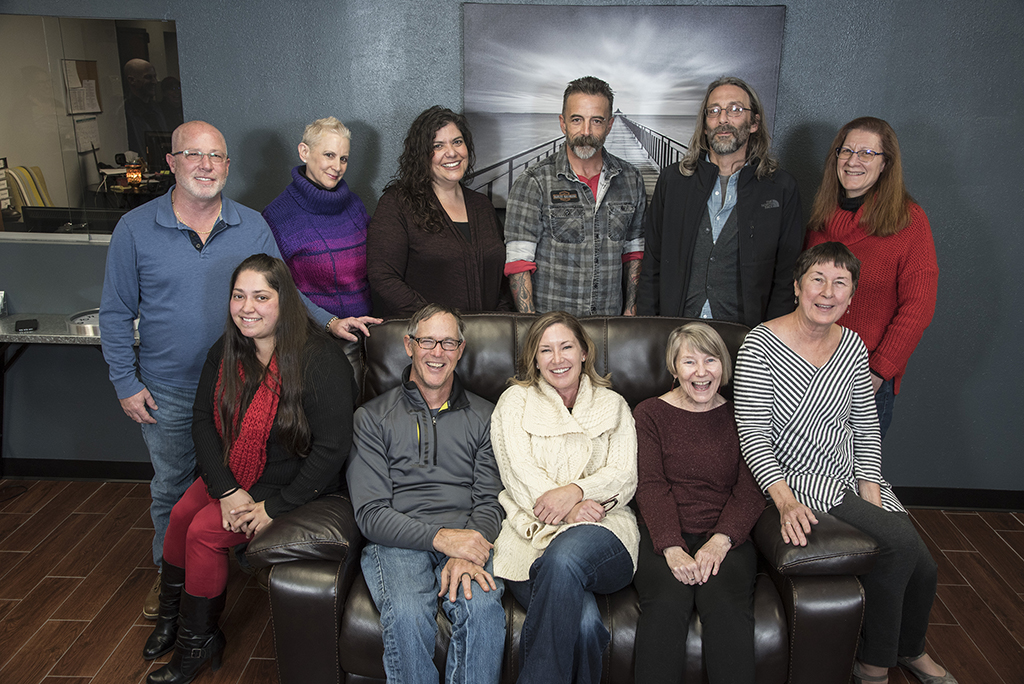
Your Success Is Ours!

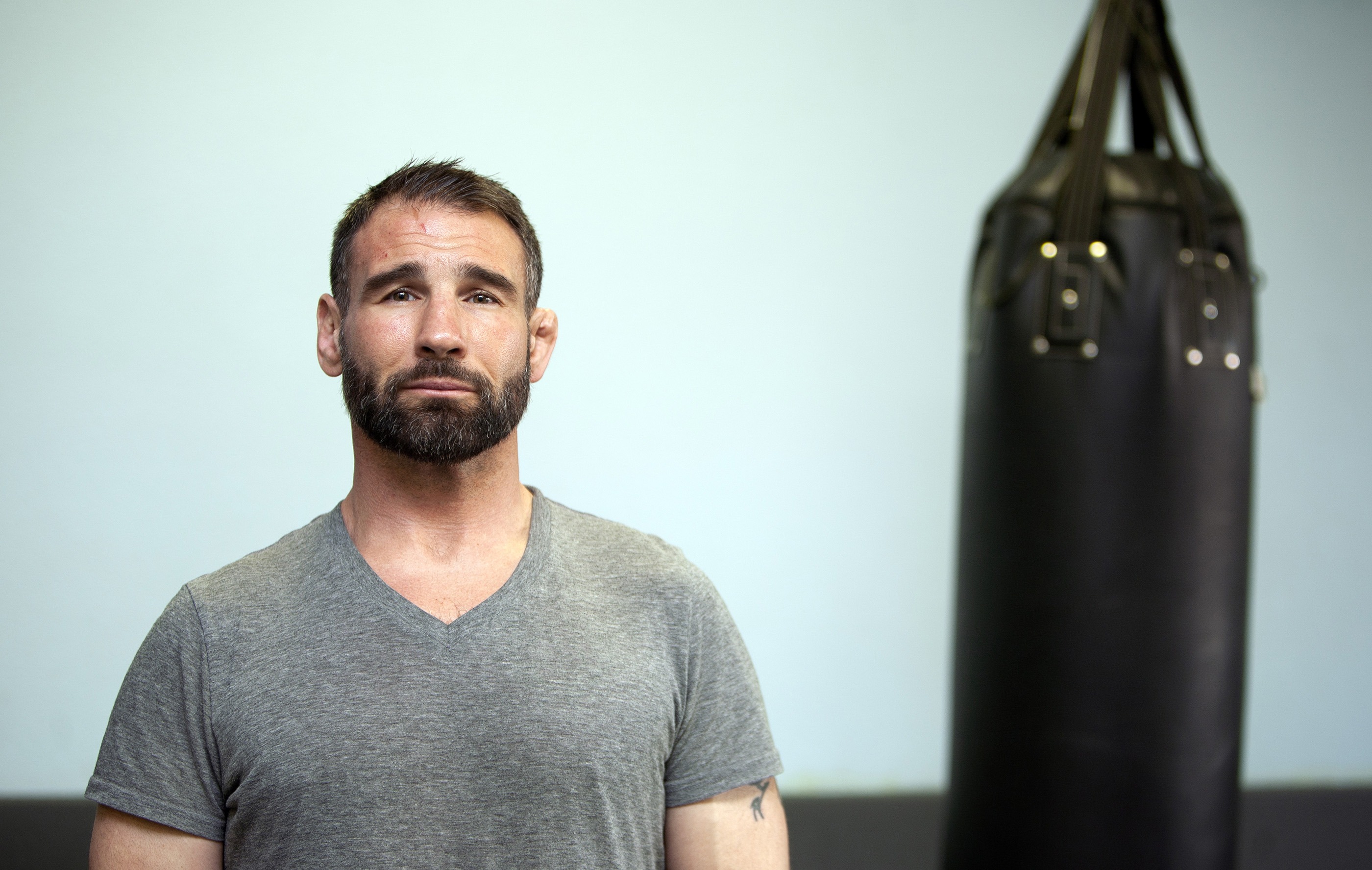
Isaac's Story

Isaac's Story
Isaac was a rising star in the Ultimate Fighting Championship when opiate addiction cut his career short and left him homeless, separated from his family, and facing prison for crimes he committed to feed his habit. Once 23rd in the world as a UFC mixed martial arts fighter, Isaac says it was a disease of perception that stopped him from seeking treatment until he was looking at a lengthy prison sentence.
“I never thought about treatment. The UFC is this ‘pull-yourself-up-by-your-bootstraps’ kind of environment. I had made a career out of being one of the toughest people in the sport. I figured I could kick this on my own. Admitting I needed to get clean was like admitting I wasn’t in control. I was also in denial because I had a career, I had a house and a wife. I thought I was functioning.”
This was not Isaac’s first encounter with drug addiction or treatment. By the time he was 15, he had been sent to an adolescent care unit. At 17, he faced the choice of detention or treatment after crippling a friend in a drunk driving accident. Isaac chose treatment and for several years after that embraced recovery as an active participant in the AA community. But as his fighting career began to take off, Isaac stopped going to meetings and forgot about the ongoing need to maintain recovery.
Read More He began drinking again.The pain and injury that comes from fighting reawakened his addiction. “Fighting for the UFC, I was held in high esteem. I had fans.” And some of those fans were doctors who prescribed him as much oxycodone as he wanted. Isaac was able to justify his excessive use of opioid painkillers to treat his pain. Eventually, he started snorting pain pills and spending large amounts of money to buy more. When he was introduced to heroin, he knew this was dangerous territory. But it was cheaper, and more effective. So began the spiral that cost him his career, his family, and nearly his life. Isaac was suspended from the UFC. He continued fighting at smaller venues, but his drug use became so severe he gave that up, too. He was lying to his wife, telling her he was going to work when he was out stealing to pay for his drug habit. When he was arrested, Isaac said it was a moment of clarity for him. “At that point, I really did want to get clean. I’d wake up and not want to get high, but couldn’t handle kicking heroin on my own. Now I could stop running. I could quit lying to my wife and family.” Isaac went into a ten-day treatment program but when he got out, he began using again immediately. When his wife kicked him out, he was homeless. “At that point, my plan was to live on the street until I was dead.” But Isaac’s wife reached out to him and insisted he seek treatment again. She gave him a phone number, and he made that call. “I don’t know why I said yes. I just did. I was just so beat down, this was my out and I took it.” Isaac’s wife dropped him off at the treatment center, planning to divorce him immediately. Isaac completed a 30-day inpatient program that focused on the 12-Step model, and then spent 60 days in a Sober Living facility. During that time he worked with a therapist on grief, loss, and trauma, participated in group therapy, attended 12-Step meetings, and did family therapy with his wife. “Learning about how the addicted mind works really helped my wife to understand me better.” Isaac said he began to heal during this process, recognizing that his addiction was something he could treat. Something clicked in him this time that allowed him to take his recovery seriously. The longer I stick around, the more all the hokey shit that you hear in recovery makes sense, like learning to love myself. I really am learning to love myself and love life again. And it’s scary, because I was really close to death. I see how seriously I have to take this disease and my recovery.” Isaac’s wife did not divorce him. They are learning how to live together again. Isaac and his wife both recognized that recovery had to be their main priority if their marriage was going to survive. Isaac is an active member in his local 12-Step community and works closely with a sponsor. His wife attends Al-Anon. Isaac owns and operates a gym. He and his business partner have opened their doors to other people in recovery in the belief that a physical outlet is an excellent way of dealing with the physical and mental challenges of recovery. “I think it’s good to understand that you can push yourself when things are rough. You can push yourself mentally past places where before would have been an excuse to use. It’s not like it’s a recovery center, but we talk a lot about when things get rough in life you don’t just get to give up. You can learn this lesson in the gym so we really stress that around here.” Isaac says that the biggest challenge for him right now is dealing with the shame of his relapse, and recognizing that the problems he has are of his own making. Isaac uses the tools he learned in recovery, going to meetings and staying close to people in recovery, talking openly and honestly to his support community, his wife and his sponsor, and prayer. The work he does in his gym is also his way of giving back, developing and maintaining fellowship, and building that sense of purpose he lost while using. Despite everything he went through, Isaac says he does not regret the relapse. “I never really took it seriously before. I think it was important for me to relapse because there’s always the thought, like, I might be too young. Maybe I was just a kid and had to deal with some issues. Maybe, you know, there’s always “I might have just been this, this or this” and not an addict. All the damage that I did helped me to realize how that’s not true. I am an alcoholic and an addict through and through; I see that now. I wish I would have gotten it earlier. But it was very important to run through all those loopholes of what my brain would tell me in order to figure out that I really am an alcoholic and addict.”
“I started to see the end. I had been arrested, and I was facing quite a bit of prison time. And that never stopped me. But I was starting to see deaths, you know, people around me dying of overdoses. The way I was using was gonna kill me. It’s a weird paradox, there were times I wished I wouldn’t wake up the next morning. And now that I’m sober, I see how close that actually was to happening.
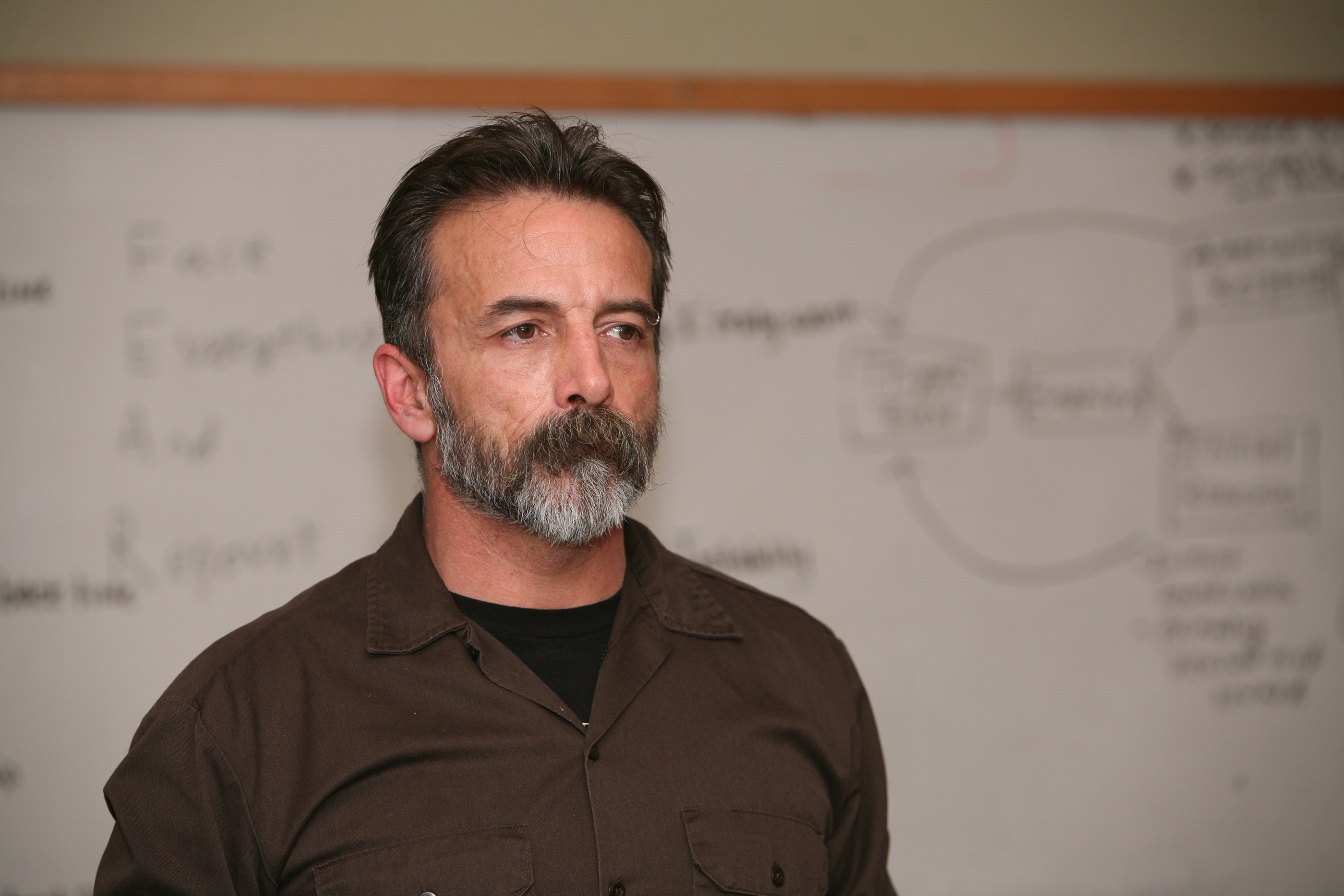
Thomas's Story

Thomas's Story
Thomas is a peer support worker at Turning Point Recovery. As a recovering addict himself, he can tap into his own experience and relate intimately to the challenges and successes of recovery. Thomas always keeps his phone so he can be available to clients when they are struggling and need support.
But seven years ago, Thomas was sitting alone in his room in an inpatient facility with the thought that no one in the world wanted to hear a word he had to say, and the only possible solution he could come up with to solve the mess of his life was death. He prayed for it. Thomas says it was that night that he found himself at the first step of recovery; hollowed out and alone, he admitted defeat. He asked for help.
It was a long road to that night in the facility. Thomas grew up in the roughest neighborhoods of Albuquerque, and began drinking when he was ten. At eleven he smoked pot for the first time and felt he had found the answer to life.
With the logic of a ten-year-old boy, Thomas felt he could never compare to his tough, alcoholic construction worker father or his two athletic older brothers. “I was a little guy running around this family of big old dudes that I thought were larger than life. As a kid, I just never felt like I’d measure up to that. And I kind of became the black sheep and rebelled. I wouldn’t say that I carried the weight of insecurity back then. But it was definite, I’m not going to be like these guys. So I’m just going to be a good little bad guy.”
Read More Thomas’ life was marked by that paradox found in many addicts: a remarkable sense of responsibility coupled with remarkably irresponsible and irrational behavior. Thomas fought, smoked, and drank his way through high school. When he was 17, he got his girlfriend pregnant. Thomas finished school, and immediately got a job, married his girlfriend, and started a family. But he continued to drink and smoke, often spending his entire paycheck. He would stay up until 2:00 or 3:00 in the morning, and then drive to his worksite so he would be there at 7:00am when work started. “It never occurred to me that I was an addict. Never even a thought of it.” This went on for ten years – and then it all fell apart. “You know that theory that we stop maturing emotionally when we start using? I stayed, emotionally, a 10-year-old all the way through my 20s…and I think what happened is my wife outgrew me.” Thomas was 27 when his wife left him. At about the same time, his dad – that larger than life guy who he’d always had on a pedestal – committed suicide. In the middle of the storm, Thomas was accepted into the city firefighter program, after years of trying. Thomas threw himself into the rigorous training program, and succeeded. He buried his anguish in physical and academic work. “But man, did I ever grieve my dad? I just think I stayed under the influence of something the whole time. I was suicidal. When I was a fireman, you know, I was out in the field and fighting whenever I could. When the bells would go off, it was like, whatever. I’m going to either kick this fire’s ass and be a hero, or I’m going to get killed. It doesn’t matter to me. The grief would sneak in and I would hold it back with drugs. I would put guns to my head, literally, in tears and stuff – but I never did the act. It was pretty heavy.” Thomas worked for several years as a firefighter, gravitating toward his co-workers who were heavy drinkers. “And then there was a smaller group of guys who smoked crack. But when I got into heroin, I was on my own. There was no other firefighters doing heroin with me.” Thomas continued to do heroin on the job for another two years before he was caught. He lost his job, and his job was his identity, his whole world. It was like falling off a cliff. “Everything escalated then. I was a heavy, heavy heroin user and I was doing atrocious things every day to get it.” Thomas was in and out of jail, his life crashing around him, and still, it never occurred to him to ask for help. “I was miserable. But I didn’t know how to change. I thought if I could just stop using these drugs, somehow, some way, if this drug use would stop everything would be fine. And then there would be times that it would stop for a little bit, but I would just end up relapsing.” His two children had grown up. They had families of their own — and one day they had enough. “It wasn’t an intervention. It was a decision. It was very real.” He was no longer welcome in their lives. Thomas always had a close relationship with his children and was proud of his role as father and grandfather. But he couldn’t see how he could change a lifetime of drug use, a lifetime of identifying as the “good little bad guy.” It was the only way he knew how to interact with the world. Their decision was devastating, but he didn’t know what to do. He sat in the same spot all night long, stunned and paralyzed. In the morning, he took off driving, not knowing where he was going. He found himself at his daughter’s job, in tears. For the first time, he asked for help. As he puts it, it was a profound surrender. A few days later he was in a residential treatment center. Thomas credits that night in the residential center when all he could imagine was death as the moment that brought him back to life. “I had a spiritual experience in rehab and I haven’t used since.” Thomas committed to the work of his recovery with the same fervor he once threw himself into being a firefighter. Seven clean and sober years later, Thomas is a peer support worker. He is going to college for the first time to be a clinician in the field of recovery. “I’m doing work I love. I have relationships with my kids and grandkids. Man, they’re not even gonna believe the stories they hear about me. Recovery has given me back family, goals, purpose, reasonable happiness.”
Contact us to speak with a team member and learn more about our admissions process.
